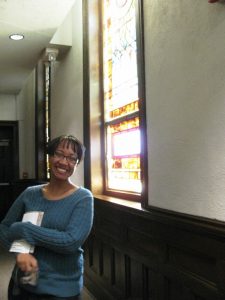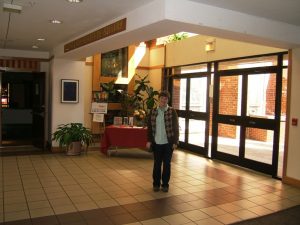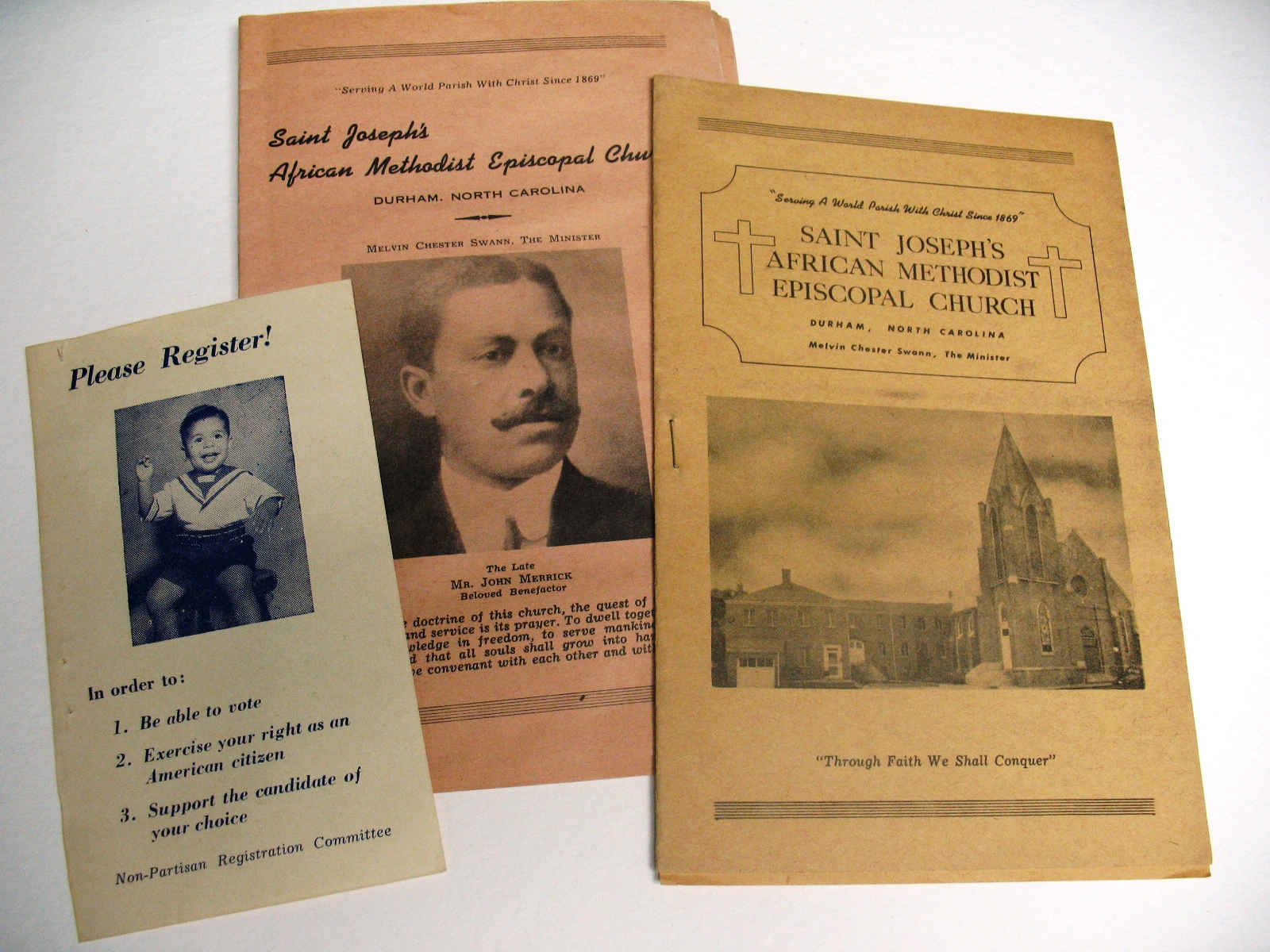We interrupt our regularly scheduled posting to give you the inside scoop on what you may have missed at Wilson Library last week.
The Southern Historical Collection had the privilege of hosting Edward E. Baptist as he presented findings from his new book The Half Has Never Been Told: The Making of American Capitalism. The book received media attention when The Economist published a now-redacted review criticizing his argument that the slave system in the pre-Civil War south is largely responsible for the capitalist system in America. Due to his book’s attention (and its increasingly positive reviews), we couldn’t wait to hear what evidence for this argument he found in our archives!
 Dr. Baptist opened by explaining how he began trying to find accounts of slave survival and endurance during the migration of slaves deeper south to meet the growing demand for cotton. He explained that what he uncovered during the process was the systematic torture of slaves, to increase the amount of cotton that was picked. Not many personal accounts of slaves from that time period exist, what he was able to find though was ledgers, receipts, and bank notes revealing how slaves provided collateral on bank loans, how foreign investors provided the funds for new plantation owner’s to buy slaves, and how slave owner’s systematically exploited slaves to increase the amount of cotton they picked.
Dr. Baptist opened by explaining how he began trying to find accounts of slave survival and endurance during the migration of slaves deeper south to meet the growing demand for cotton. He explained that what he uncovered during the process was the systematic torture of slaves, to increase the amount of cotton that was picked. Not many personal accounts of slaves from that time period exist, what he was able to find though was ledgers, receipts, and bank notes revealing how slaves provided collateral on bank loans, how foreign investors provided the funds for new plantation owner’s to buy slaves, and how slave owner’s systematically exploited slaves to increase the amount of cotton they picked.
The ledgers he found here at the Southern Historical Collection reveal that the growing world demand for cotton drove plantation owners to push slaves into picking greater and greater amounts of cotton. The ledgers reveal the weight of cotton picked by a slave, at three points during a single day. They forced slaves to exceed their past weights through systematic torture; they would be beaten if they fell under their quota, and exceeding their past performance resulted in the owners setting a higher quota for them. This widespread system of torture made the slaves valuable, and was the only way to meet the economic demand for cotton at the time. During the lecture, Dr. Baptist expressed how troubling this is to the American conception of capitalism, which is often associated with freedom and equality.
-

An example of one of the ledgers recording weight of cotton picked by slaves. - Item Citation: From Folder 447, in the Rice C. Ballard Papers #4850, Southern Historical Collection, Wilson Library, University of North Carolina at Chapel Hill.
This is only a small portion of what Dr. Baptist found in his book, and we highly recommend that you check it out! It expands on slavery as an economic system, while also illuminating the resilience of slaves from their own personal accounts.
See you on Wednesday, when you can expect to find another staff profile! We hope you’re getting to know us a little better. In the meantime, please feel free to let us know what you think of Edward E. Baptist’s book!





